UN Human Rights Council slams 34-year sentence given to Saudi women's rights defender
The United Nations Human Rights Council has denounced Saudi Arabia for sentencing women's rights activist Salma al-Shehab to 34 years in prison, stating that the kingdom has widened its repressive measures against pro-democracy campaigners amid a reduction of its isolation from the international community following brutal killing of a dissident journalist.
The UN body said in a statement that the jail term handed down to Shehab, a mother of two young children and a doctoral student at the United Kingdom’s Leeds University, is the longest sentence ever given to a women's rights defender in Saudi Arabia.
The UN rights council noted that Saudi authorities have taken advantage of the return to the international fold following the savage killing of the dissident columnist Jamal Khashoggi inside the kingdom’s consulate in Istanbul on October 2, 2018 to deepen crackdown on political opponents.
Shehab was initially sentenced to six years in prison for using an internet website to “cause public unrest and destabilize civil and national security,” the UN human Rights Council said, but after a public prosecutor asked for other alleged crimes to be taken into consideration, but an appeals court recently increased the sentence to 34 years along with a 34-year travel ban.
إنّ الحكم الصادر بحق #سلمى_الشهاب @I_Salma1988:
— European Saudi organisation for Human Rights (@ESOHumanRights) August 16, 2022
🔴 غير مسبوق
🔴 خطير
🔴 أطول حكم سجن صادر بحق الناشطات والناشطين
➡️ https://t.co/rOk5AOvy2H pic.twitter.com/DsV9s6IB0y
She was on holiday in Saudi Arabia in January 2021 and had planned to return to the United Kingdom when she was detained, according to the Freedom Initiative, a Washington-based human rights organization.
Several human rights organizations, including the Human Rights Foundation, the Freedom Initiative, the European Saudi Organization for Human Rights (ESOHR) and ALQST for Human Rights, have condemned the ruling against the Saudi women's rights activist, and called for her release.
“We call on Saudi authorities to free Salma, allowing her to return to care for her children and to complete her studies safely in the United Kingdom,” the Freedom Initiative, a Washington-based human rights organization, said in a statement.
“Tweeting in solidarity with women’s rights activists is not a crime,” it added.
The United States Commission on International Religious Freedom said, “Shehab’s religious identity as a Shia Muslim is believed to have been a factor in her arrest and harsh sentencing.”
🚨 NEW: Saudi women’s rights activist & academic Salma al-Shehab was sentenced to 34 years in prison + 34 year travel ban for tweets calling for basic rights in the KSA.
— The Freedom Initiative (@thefreedomi) August 14, 2022
This is the longest known sentence against a women's rights defender in the country.https://t.co/mARPf6kSa9
“Salma was active during campaigns demanding the lifting of the guardianship system over women by their male relatives. She also called for freedom for male and female prisoners of conscience, such as human rights defender Loujain al-Hathloul and members of the Saudi Civil and Political Rights Association (ACPRA),” ESOHR said in a statement.
Shehab told a Saudi court that she had faced abuse and harassment during her detention, including being subjected to interrogations after being given medications that exhausted her.
The 34-year-old also stated that she had been “repeatedly accosted” by at least five men for being a member of the kingdom’s Shia Muslim community.
Shehab said the actions had led to an “outright insult and abuse of human dignity.”
Ever since Mohammed bin Salman became Saudi Arabia’s de facto leader in 2017, the kingdom has arrested hundreds of activists, bloggers, intellectuals and others for their political activism, showing almost zero tolerance for dissent even in the face of international condemnation of the crackdown.
Muslim scholars have been executed and women’s rights campaigners have been put behind bars and tortured as freedom of expression, association, and belief continue to be denied by the kingdom's authorities.
Over the past years, Riyadh has also redefined its anti-terrorism laws to target activism.
VIDEO | Press TV's news headlines
UN investigators: ‘Hallmarks of genocide’ found in Sudan’s El Fasher
UN rapporteur Albanese: Israel’s West Bank land grab 'will consolidate annexation'
Three Palestinians killed in Israeli raids on Gaza on first day of Ramadan
Hundreds of Dutch nationals served in Israeli military amid Gaza genocide
‘Playing with fire’: Russia sternly warns against any attack on Iran
VIDEO | Iran, Russia naval forces rescue hijacked ship in mock operation during naval drills
VIDEO | Iran, Russia pledge deeper energy, economic ties at Tehran commission


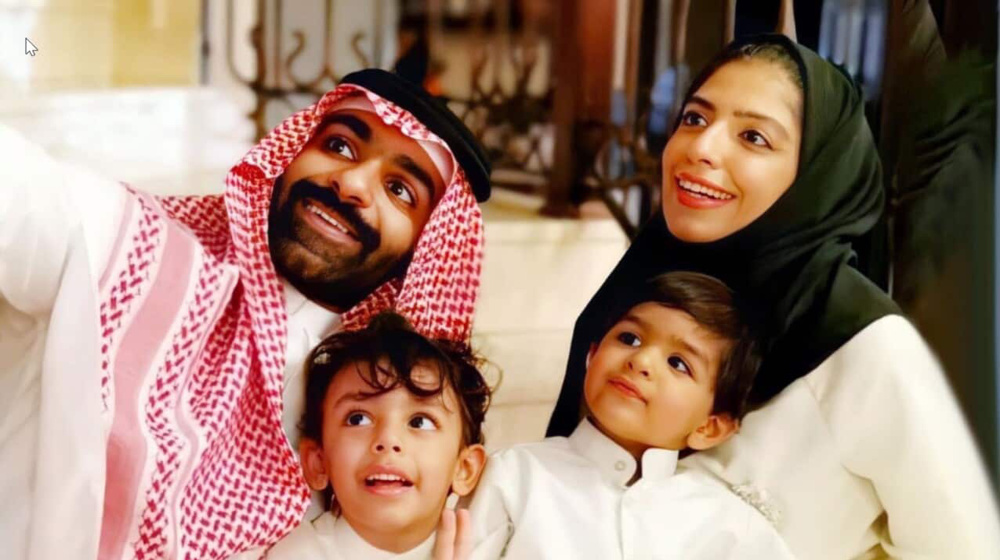
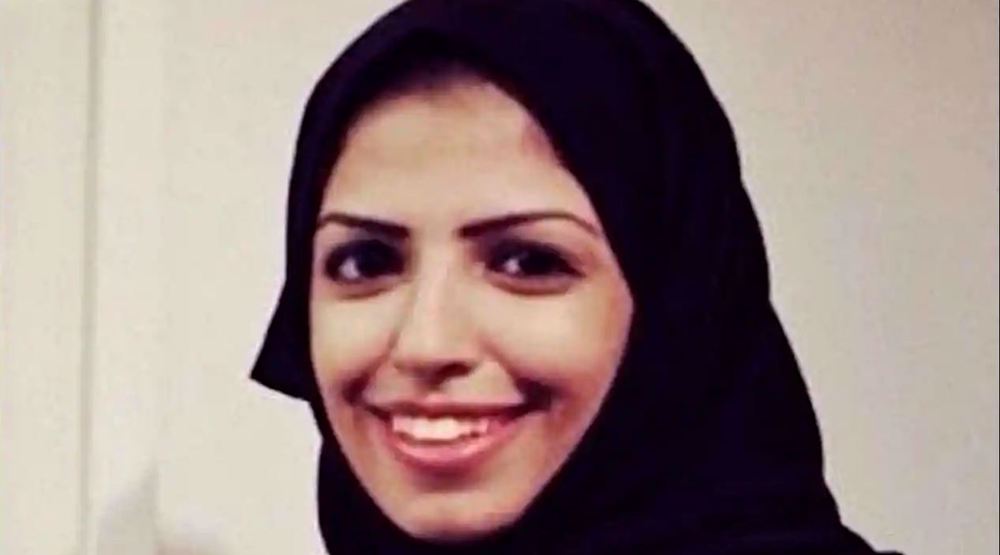






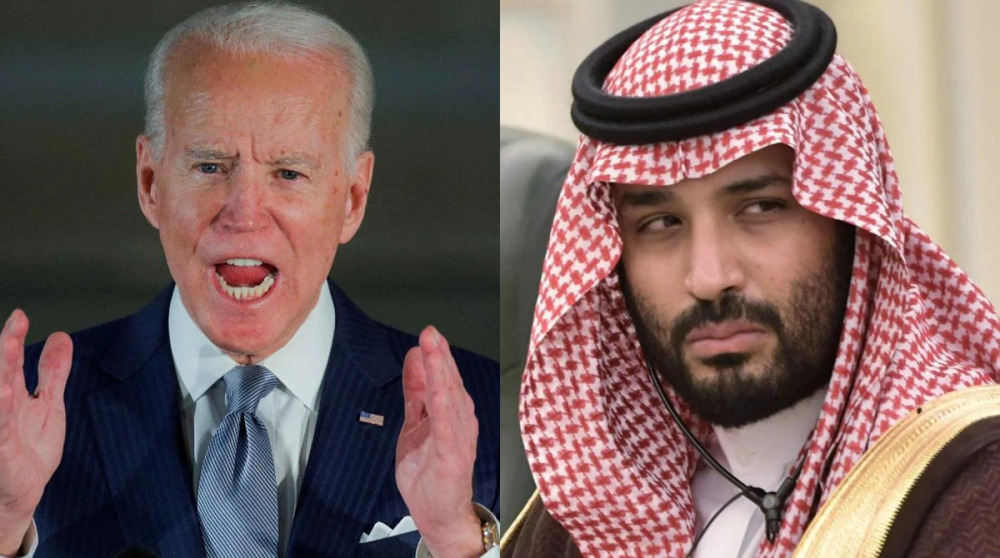
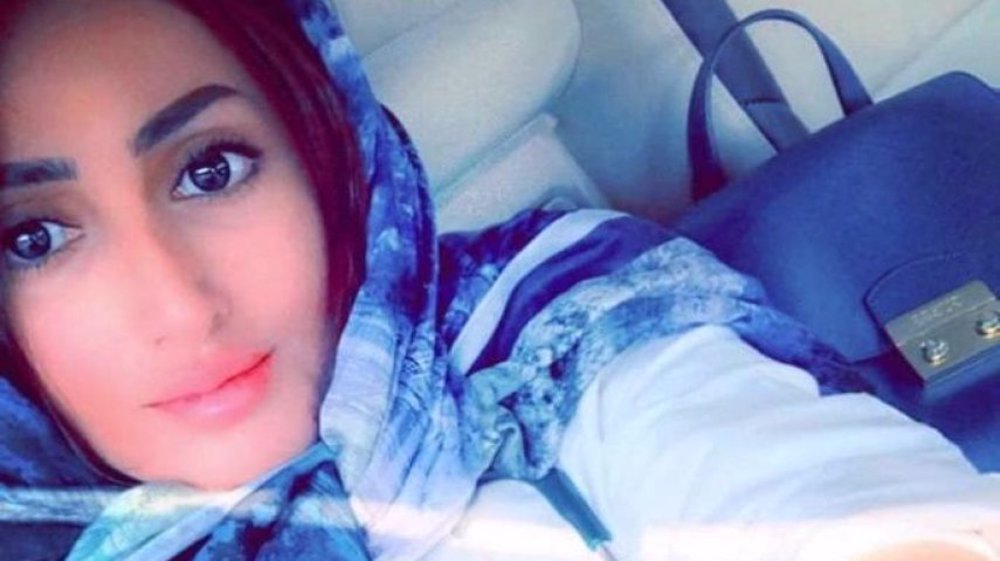
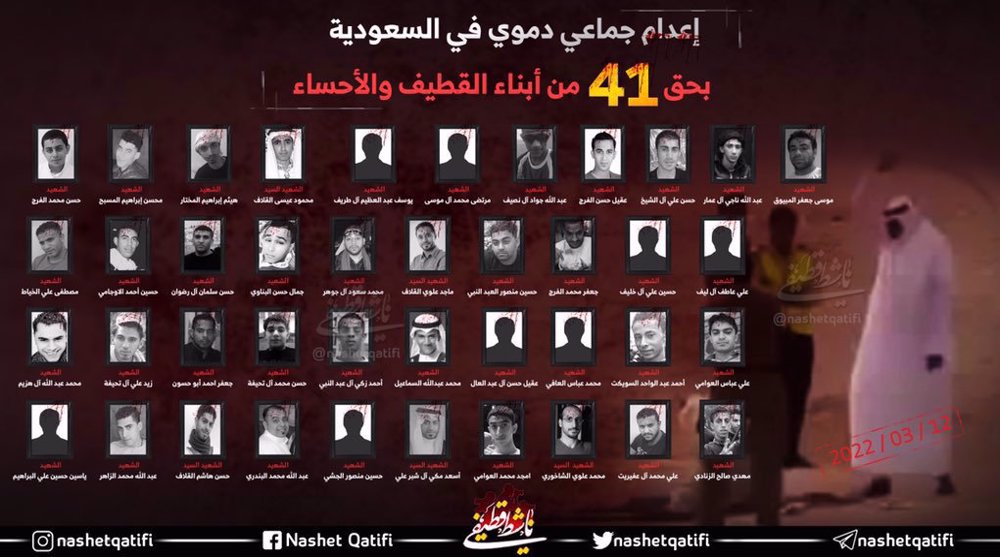
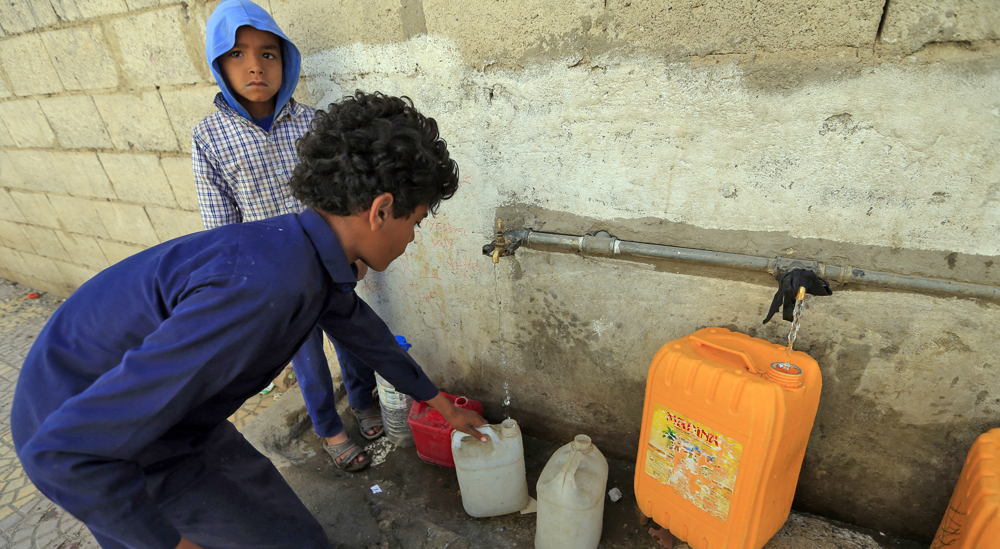


 This makes it easy to access the Press TV website
This makes it easy to access the Press TV website